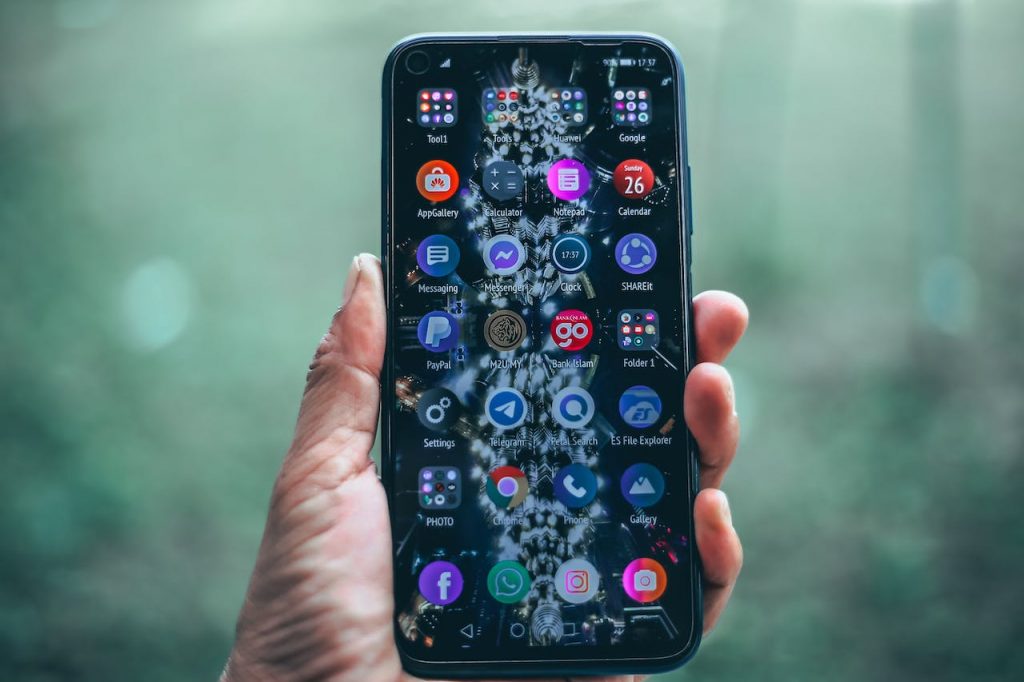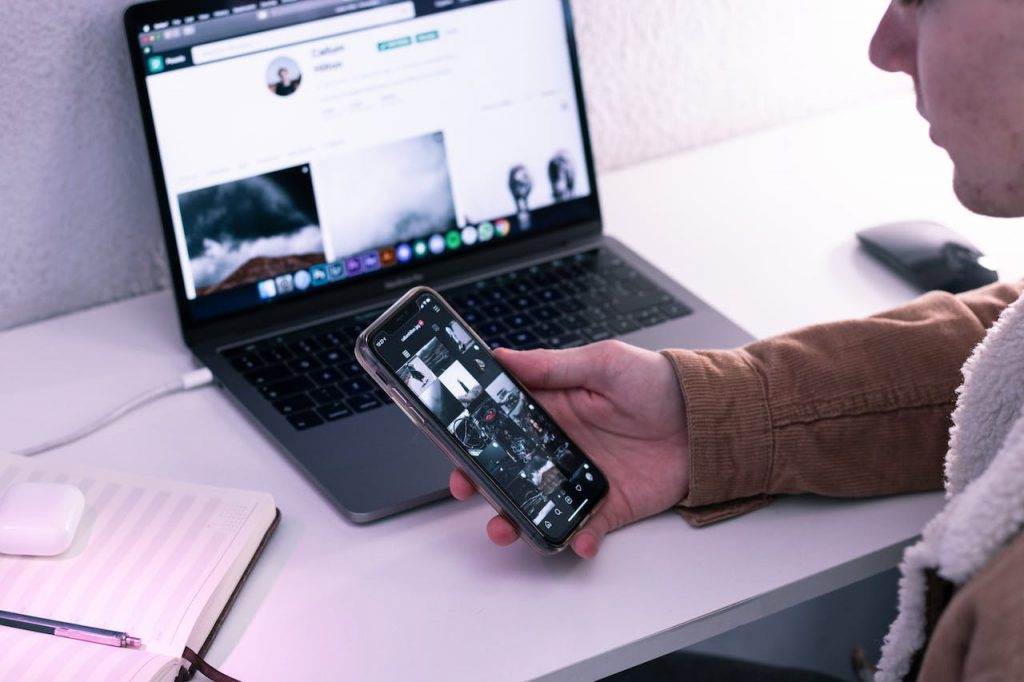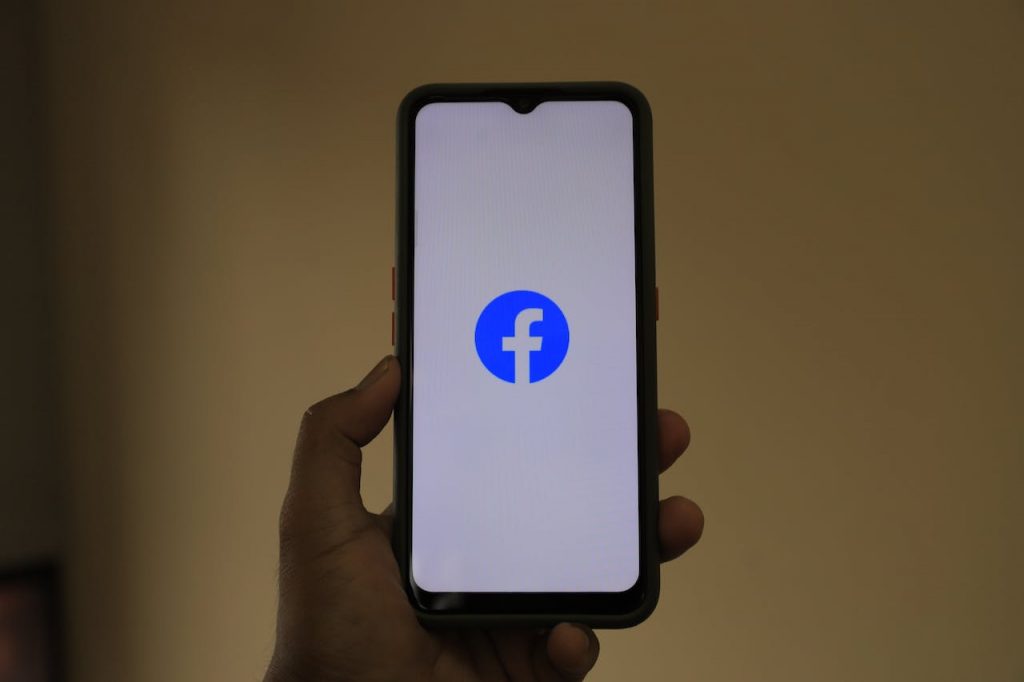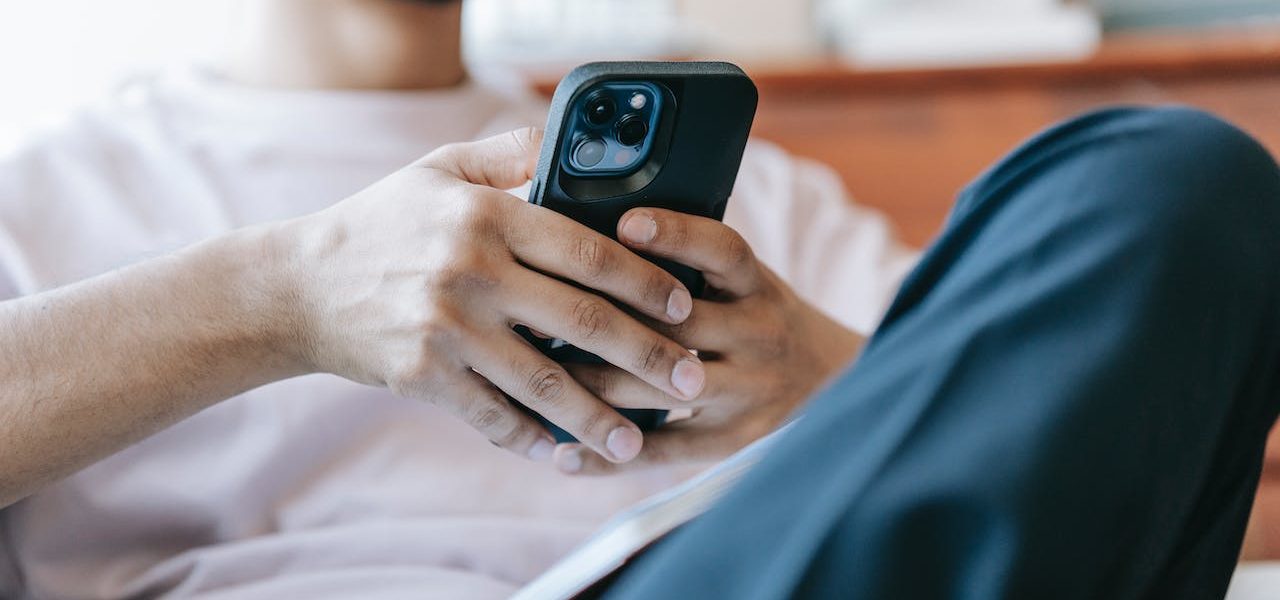Social media cheating refers to romantic or sexual interactions and relationships that people engage in online outside of their primary relationships. With social media and technology enabling constant connectivity and hidden communication, social media infidelity is becoming increasingly common.
DID YOU KNOW?
A recent study from the University of Indiana revealed the prevalence of keeping romantic “back-burners” on social media. Researchers found that people in relationships frequently use Facebook to maintain contact with exes or platonic friends they feel they could pursue romantically if their current relationship fails.
The study uncovered that men maintain back-burner relationships at about twice the rate of women. However, the practice is common among both genders. On average, participants in relationships admitted to having romantic or sexual conversations with two other people besides their partner over social media.
The research highlights how, even when in committed relationships, many social media users engage in inappropriate flirtatious or romantic communication that constitutes emotional cheating. By keeping back-burners warm, they breach trust and intimacy boundaries. This study lends further evidence to frequent social media infidelity.
What is Considered Cheating on Social Media?
There are many behaviors on social media that can cross boundaries and be considered cheating by a partner. Even if the interactions don’t extend beyond social media messages, the emotional intimacy and intent behind them can be damaging to a relationship.
Liking and commenting flirtatiously on others’ photos and posts
Repeatedly liking and leaving flirtatious or sexually suggestive comments on other people’s posts can be considered cheating on social media. It expresses romantic interest and emotional intimacy that violates commitment.
Private messaging with romantic intent
Direct messaging others to establish romantic relationships or for emotional or sexual fulfillment outside of the primary relationship constitutes cheating. Partners often keep these private messages hidden from their significant other.
Sharing intimate photos
Sending or receiving intimate, flirtatious, or explicit photos crosses physical intimacy boundaries, especially when those photos are not willingly shared with the committed partner. Sexting can evolve into full-on virtual affairs.
Online emotional affairs through constant communication
What more is considered cheating on social media? Frequently messaging, texting, or communicating through social media direct messages provides intimacy and emotional support that should be exclusive to primary partners. This can lead to very emotionally invested online affairs.
Downplaying or hiding online interactions from partner
If interactions with others online are intentionally kept private and hidden from a partner, it suggests an awareness of inappropriateness and betrayal. Deception is often inherent in social media infidelity.
Secret friendships and followers
Establishing close friendships and regularly interacting with people online that a partner is not aware of breaks trust and emotional fidelity. Secret friends often progress to secret emotional and physical affairs.
How Social Media Enables Cheating

Once we find out what is considered cheating on social media, let’s understand how it enables. There are several unique aspects of social media communication that, unfortunately, enable cheating behavior and secret online relationships to develop.
Connecting with old flames or new romantic prospects
Social media provides an avenue for people to easily connect or reconnect with those outside of their current relationship, including past lovers, romantic interests, and new attractive prospects. This expands opportunity.
Blurring of boundaries due to lack of physical interaction
Without the physical proximity and intimacy that in-person interactions provide, people often feel that online interactions are harmless. But emotional intimacy can still be fostered digitally.
Ability to hide and delete interactions
What more is considered cheating on social media is the private, hidden nature of social media messaging and the ability to easily delete messages, photos, and call logs makes concealing online cheating much easier than face-to-face affairs.
Feelings of intimacy created through constant connection
Messaging back and forth non-stop through digital mediums creates feelings of emotional intimacy, bonding, and psychological closeness between people, providing the feelings of partnership that people should receive from their primary partner.
Signs Your Partner is Cheating on Social Media

While definitive signs will vary in each relationship, there are some common social media behaviors that may potentially indicate a partner is partaking in online cheating or inappropriate interactions.
They become protective over their phone and social accounts
Partners who are actively cheating or hiding inappropriate interactions often exhibit heightened protectiveness and secrecy when it comes to their mobile devices and social media accounts. They may constantly have their phone on them, sleep with it, and take it into the bathroom to prevent you from accessing it. Passwords may be changed, and usage closely guarded. They may angle the screen away from your sight or abruptly put their phone face down if you come near. Any request from you to see notifications or messages is met with strong resistance or anger. This level of protectiveness over their digital privacy likely signals there are red flags regarding social media and cheating.
They close out of apps or switch screens when you walk by
When a partner is absorbed in inappropriate social media activity, they often act startled or suddenly switch applications on their devices when their partner approaches. They’ll hurriedly close out of messaging apps, dating sites, or social media pages they want to conceal. Or they’ll swiftly click over to innocuous apps or screens. These rapid movements are attempts to disguise digital behavior betraying the relationship. Furtive efforts to hide screens point clearly to misconduct and fear of being “caught” red-handed engaging in virtual infidelity.
Drastic increase in social media use, especially late at night
A spouse immersed in social media infidelity often exhibits increased social media usage at all hours, but especially during late nighttime when a trusting partner is asleep. Sleep cycles may be disrupted as the cheating partner sneaks into online interaction with their love interest once their partner goes to bed. They may claim difficulty sleeping when really they are privately messaging and flirting. Alternatively, the cheating partner may portray themselves as simply engaging in innocent social media browsing and usage, downplaying drastically increased app notifications, messaging, and posting. But in reality, they are actively investing time in cultivating external romantic relationships.
Sudden changes in the style of posts and photos
When a partner who previously did not place much care into their social media presence suddenly shifts their posting habits and content style, it may reflect an attempt to attract external attention, thus, social media infidelity. For example, someone typically posting family photos may now concentrate on sexy selfies. Previously tame posts transform into daily snaps in revealing outfits, sultry poses, and flirty captions fishing for DMs. Or benign check-ins flip into constant posts at bars and clubs. These represent efforts to dress up feeds and broadcast newly single status in order to court interest and romantic opportunities outside of the relationship. The partner is leveraging social media to initiate cheating.
The Impact of Social Media Cheating
The intimate nature of online affairs can deeply impact relationships, destroying trust and creating lasting resentment if proper steps toward healing are not taken.
Damages trust
Secret digital relationships severely damage the trust between partners that is foundational to a committed relationship. Compartmentalizing parts of life erodes faith.
Creates feelings of betrayal, jealousy, and insecurity
Finding out about cheating on social media leads to acute feelings of betrayal, hurt, jealousy, resentment, and insecurity for the partner who was deceived.
Compromises intimacy and connection in the relationship
The intimacy void that results from one partner diverting emotional and sexual energy online leaves couples feeling distant, disconnected, and unable to be vulnerable with each other.
Erodes emotional commitment
Partaking in online relationships outside of the primary partnership deteriorates the level of care, investment, and emotional commitment partners have pledged to each other.
Leads to further infidelity in some cases
Social media cheating frequently progresses further to physical meetups and sexual encounters, escalating from seemingly benign online interactions to full-blown infidelity.
Rebuilding Trust After Social Media Cheating

Re-establishing broken trust and healing after online cheating scandals requires accountability, changed behaviors over time, and investment from both people in the relationship. Discuss with your partner even the tiniest details, like “Is sending a selfie cheating?” It will help you avoid problems further.
Full transparency with devices and accounts
Ensuring you have full access to your partner’s devices and accounts helps confirm the cheating has ended and no deception remains. Temporary loss of privacy is typical.
You can use spy apps
Spy apps are software programs designed to record activities on a device without the user’s knowledge. They can monitor calls, messages, social media interactions, and even the physical location of the device. In situations involving infidelity, spy apps can provide valuable insights into a partner’s online activity, potentially revealing any dishonest behavior.
Most spy apps have such features:
- Monitor calls and messages: With spy apps, you can see the content of text messages and listen to phone calls made from or received on the target device.
- Track social media activity: Spy apps can track all social media interactions, including posts, comments, likes, and private messages on platforms like Facebook, Instagram, and Snapchat. It is a useful feature for those who want to protect their relationships from social media cheating.
- GPS location tracking: Some spy apps allow you to see the real-time location of the device, making it easier to monitor your partner’s movements.
- Keylogger function: This feature records all keystrokes made on the target device, allowing you to access passwords and login information for social media accounts.
DID YOU KNOW?
Benefits of using a spy app:
- Provides concrete evidence: If your partner denies cheating, a spy app can provide concrete evidence of their online activities.
- Saves time and effort: Instead of manually checking your partner’s phone or social media accounts, a spy app does the work for you, saving you time and effort.
- Can lead to open communication: If your partner knows you are using a spy app, it can lead to open and honest communication about the cheating and the relationship as a whole.
- Stealth mode: Many spy apps have a stealth mode, which means they can operate discreetly without the user’s knowledge. This ensures that your partner will not find out about the spy app and potentially delete any incriminating evidence.
Removing inappropriate online connections
Blocking previous romantic interests, friends involved in social media cheating, and any accounts used deceptively helps rebuild integrity and prevent old patterns from repeating.
Improving communication and intimacy
Partners should invest focused time into therapy and intentional intimacy exercises to address root problems and meet unfulfilled emotional needs that may have compelled cheating.
Counseling/therapy to address underlying issues
Seeking professional counseling gives couples tools to improve conflict resolution, restore vulnerability and trust, and address any individual or relationship factors that enabled infidelity.
Sincerely apologizing and taking responsibility
The offending partner needs to take full ownership of the pain caused by their choices, validate hurt feelings, and patiently answer any questions that arise to help the betrayed person process emotions after social media cheating.
Consistently demonstrating trustworthy behaviors over time
In the long journey towards rebuilding trust after online cheating, the perpetrators must put in the work to prove themselves trustworthy again through actions and accountability day in and day out.
Setting Social Media Boundaries in Relationships
Establishing mutual understanding around appropriate social media behaviors can help prevent online cheating and create a healthier dynamic in relationships.
- Discuss appropriate online interactions and behaviors based on each individual’s emotional needs and boundaries. Keep an ongoing dialogue.
- Agree to disclose all friendships and online interactions with others to your partner, so they know who is involved in your digital life.
- Establish rules regarding communication with exes, coworkers, past romantic partners, etc. Determine what interactions are acceptable to avoid social media cheating.
- Remove any social media connections, friends, or followers who inappropriately flirt or interact. Prune temptation.
- Limit late-night social media use if it replaces couples’ time. Be present and mindful when spending time together.
- Allow partner access to accounts and devices when requested, but not total control. Trust means freedom, not surveillance.
Conclusion
Social media cheating involves intimate online relationships that betray primary partner commitments. Damaging trust and intimacy, it is critical for couples to set clear boundaries and work actively to improve communication, increase transparency, and address underlying relationship issues. In our digital age, fostering healthier relationships requires being more conscientious of how we connect online as well as in person. With trust and mutual understanding as cornerstones, relationships can avoid the pitfalls of social media and use technology in ways that enrich, rather than jeopardize, our most important bonds.



